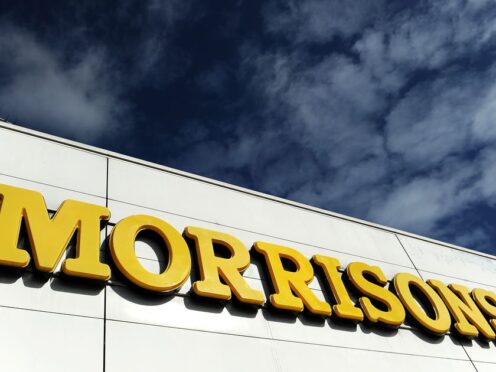
Supermarket chain Morrisons has lost a bid to overturn convictions for health and safety failures after an epileptic employee died following a fall from a staircase during a seizure.
Matthew Gunn died 12 days after suffering catastrophic head injuries at the WM Morrisons store in Tewkesbury, Gloucestershire, in September 2014.
The company was fined £3.5 million in March last year after it was convicted of three health and safety offences.
It also admitted a fourth charge.
The Bradford-based firm applied to the Court of Appeal for the green light to challenge the convictions, with lawyers telling a hearing on Wednesday that health and safety laws were incorrectly interpreted at trial.
But three judges dismissed the appeal bid, stating that steps “could have been taken” to mitigate the risks posed.
Lord Justice William Davis said: “We accept that the staircase did not present a risk for almost all members of staff at the store.
“In our judgment that is not the point. It created a material risk to the health and safety of Matthew Gunn.”
Mr Gunn, 27, who worked as a shelf replenisher, regularly used the staircase to access his locker on the first floor of the shop, where he stored his belongings in line with company policy.
He never regained consciousness after his fall on September 25 2014, and died on October 7 that year.
Gloucester Crown Court heard that Mr Gunn died three-and-a-half months after his mother had warned managers of the risk to her son due to his frequent seizures, with prosecutors telling jurors there was a “highly likely high level of harm occurring”.
Morrisons was convicted in February 2023 of failing to ensure the health, safety and welfare of employees; failing to carry out a suitable and sufficient assessment of the risks to the health and safety of employees; and failing to review the risks and assessments of employees.
The company also admitted an offence of failing to comply with a request made by an HSE inspector for contact details of a person the inspector wanted to speak to, between May 26 2015 and February 26 2020.
Mr Gunn’s mother Sue Goellner, who attended Wednesday’s hearing via a video link, said at sentencing that her son’s death had “left a massive hole in my heart” and she had lost her job as a result and her marriage had ended.
Passing sentence, Judge Moira Macmillan said the company “fell short of the standards expected” and failed to treat Mr Gunn “as an individual”.
At Wednesday’s hearing, Richard Atkins KC, representing Tewkesbury Borough Council, which brought the prosecution, said Morrisons was aware of the nature of Mr Gunn’s health and had records of him falling on stairs due to his epilepsy.
He also told the court that while Mr Gunn’s locker was initially on the ground floor of the store, it was later moved upstairs without a risk assessment being carried out, stating “there is nothing wrong with the outcome of the case”.
Richard Matthews KC, for Morrisons, described the case as “tragic” but said a “control measure to forbid Matthew from using the stairs” was not an option.
He told the court that the stairs were a safe “means of access” and a lift was also available.
He said: “No one can or should suggest that every staircase, fixed staircase, in a workplace, with a lift, has to have a rule that epileptics who may have a severe epileptic seizure are not permitted to use it.”
He added: “If this court finds that as a matter of law, which it would have to do, a fixed permanent staircase used as a means of access amounted to that person a material risk to their health and safety, that has enormous ramifications.”
But refusing the appeal bid, Lord Justice William Davis, sitting with Mrs Justice Cheema-Grubb and Judge Dennis Watson KC, said: “There was ample evidence that the conduct of the company exposed Matthew Gunn to a real risk.
“The event that led to Matthew Gunn’s death was one that had been feared by his mother, his colleagues and the company’s occupational health officer.
“All these fears were made known to the company.”
The judges also awarded Tewkesbury Borough Council £20,000 in costs.

Enjoy the convenience of having The Sunday Post delivered as a digital ePaper straight to your smartphone, tablet or computer.
Subscribe for only £5.49 a month and enjoy all the benefits of the printed paper as a digital replica.
Subscribe